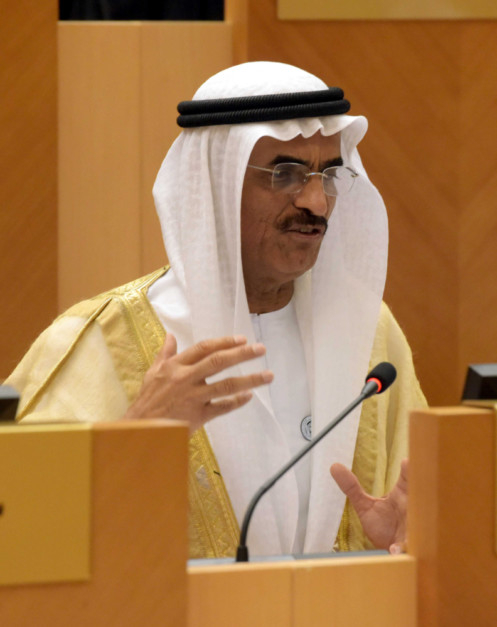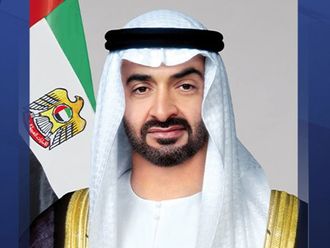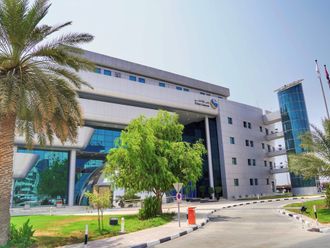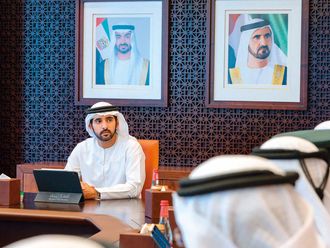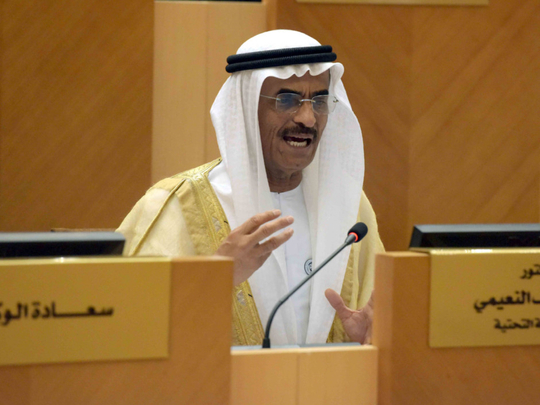
Abu Dhabi: The Shaikh Zayed Housing Programme sought help of a leading research centre and a university to build homes of the future equipped with advanced energy conservation and generation features such as solar panels, solar windows and smart home technology for citizens, Dr Abdullah Mohammad Bel Haif Al Nuaimi, Minister of Infrastructure Development, told the Federal National Council on Wednesday.
Al Nuaimi, also the chairman of the Zayed Housing Programme, said researchers of a leading UAE research centre and a university will develop what future homes will look like in 10 years.
Al Nuaimi was speaking at the House as the policy of the Ministry of Infrastructure Development was discussed.
The minister said polls will be conducted on people’s requirements and needs in their future smart homes and what smart technology and appliances they think of.
“Residential compounds will take us to the future and achieve happiness of citizens. Completed compounds scored 90 per cent satisfaction from people of the UAE,” Al Nuaimi said.
The ministry plans to build 30 compounds, with seven complexes being under construction across the emirates, Al Nuaimi said, adding that the new compounds will be even better than the ones completed earlier.
“We are now working on creating complete residential compounds, with schools and health and security facilities. The old complexes did not have these facilities,” he said.
He said that they have created a team with representatives from different departments such as the Ministry of Education, Ministry of Health, Ministry of Interior and others to supervise their respective aspects in the project.
Al Nuaimi told the House that on a visit by His Highness Shaikh Mohammad Bin Zayed Al Nahyan, Abu Dhabi Crown Prince and Deputy Supreme Commander of the UAE Armed Forces, to one of the housing projects in Al Dhafra Region, he told Al Nuaimi to build houses that he could see himself living in.
“I take that very seriously and that is why we are building high-quality housing projects. The master planners who created the plans for those compounds are of high calibre and are among the best in the world,” he said.
Al Nuaimi said four years on, by building these residential compounds by the Zayed programme and other initiatives, 35,000 to 40,000 citizens on the housing waiting list were cleared. “No citizen is on the housing waiting list now,” Al Nuaimi said.
Emirates Road rush
Aisha Salem, a member from Sharjah, blamed the ministry for failing to reduce massive traffic jams on Emirates Road.
Al Nuaimi said Emirates Road is a vital corridor linking the north to the south and expansion is vital to decreasing traffic jams in Dubai and Sharjah near the Maliha Road exit.
He added cutting traffic congestion between emirates and improving transport links to the north must be the key focus of a new transport master plan for the UAE highways.
Mohammad Bin Kardous Al Ameri, a member from Abu Dhabi, asked about what the ministry plans to address the road fatalities.
The minister said the UAE ranked first in the world in road quality and the UAE infrastructure ranks fourth worldwide.
“Accidents on federal highways decreased to 14,641 last year from 14,884 in 2016. Injuries also decreased from 362 in 2016 to 280 last year, while 44 deaths in road accidents were reported last year, compared to 46 in 2016,” Al Nuaimi said.
The minister said the Etihad Rail will reduce the number of trucks on roads to 1,000 in Al Ruwais.
The Ministry of Infrastructure Development is responsible for highway routes, particularly in the Northern Emirates of Sharjah, Ajman, Ras Al Khaimah, Umm Al Quwain and Fujairah.
Maliha Road bridge
Among the major projects to ease traffic between Dubai and Sharjah is the Dh200-million Maliha Road interchange bridge project on Emirates Road.
Work on the seven-lane bridge to handle an estimated 17,700 cars per hour is on track for completion in August 2018.
Members of the House have complained about the bottleneck on Emirates Road near the Maliha intersection since six lanes from Dubai drop to two to three lanes in Sharjah.
With the new project, a 10-lane approach road will lead to the seven-lane bridge. “There will be 10 lanes, some will go to Sharjah, some will go to Fujairah and to Ras Al Khaimah so it will help decrease the rush,” Al Nuaimi said.


